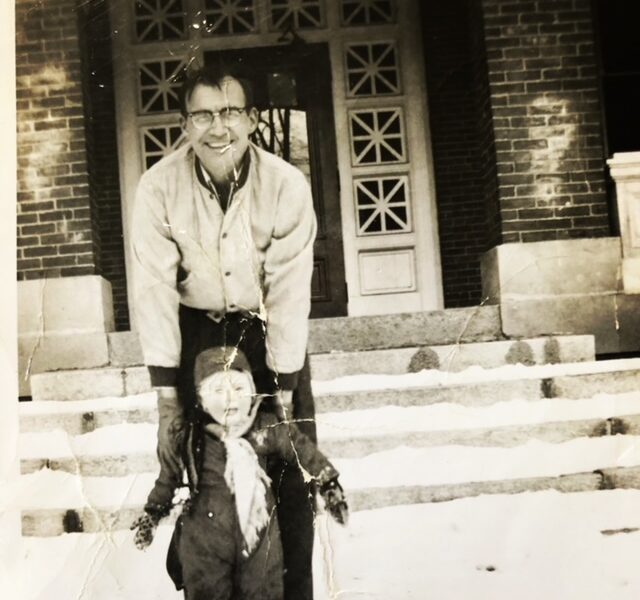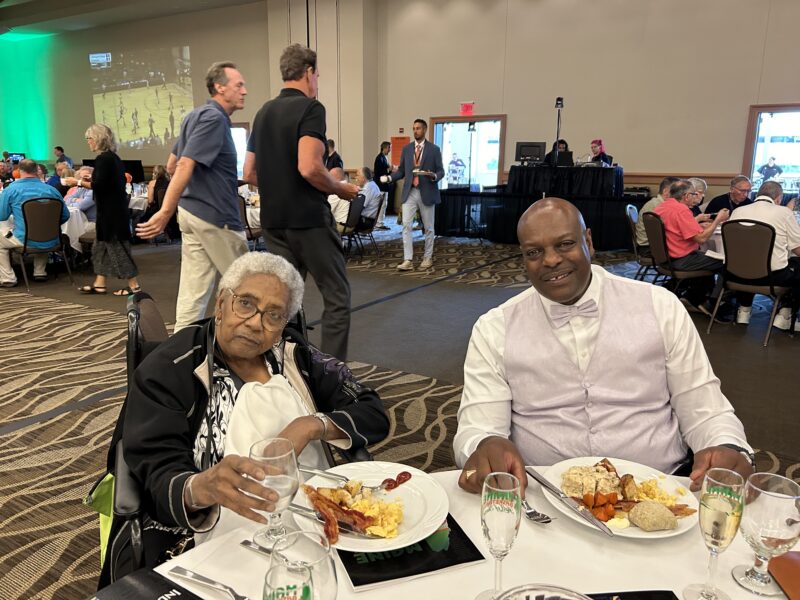I first met Tom Bragg in the summer of 1980. He was a tall and gangly 15-year old from DC who had just enrolled in our Summer Challenge Program. I was the basketball coach of the summer team we had entered in the old JC Best summer league – competitive hoops on hot, steamy asphalt under the lights in South Portland. (It was awesome!… The way the game was meant to be played.) We didn’t have much talent that summer and I was delighted that Tom showed up on the day of a particularly challenging game.
Shortly before the tip-off, I told Tom that I had good news and bad news. “The bad news: You’re probably playing the whole game no matter how tired you get. The good news: I’ll give you three time-outs to use anytime you want. So, if you need a blow, use one.” (Uhm… did I mention that I was a young wet-behind-the-ears coach who was often wrong but seldom in doubt?)
Late in the third quarter, Tom was dragging and panting in the mid-summer humidity. He motions to me to come out of the game. I shake my head as if to say, “Negatory.” We lost, badly. He went to bed pretty tired that night.
Tom went on to a storied 3-year career at Hyde, both on and off the field. As good as he was in basketball, I believe he was an even better football player. (He is the only alum we’ve ever had to play both sports in college, something he accomplished at Div. I Western Illinois. He also played lacrosse for me and did track & field one season.)
After a stint as a professsional photographer (a skill he learned as a Hyde student), Tom joined our faculty in 1991. While he has played many roles, suffice it to say that if Hyde ever established a Coaching Hall of Fame, Tom would join a select few (e.g., Gary Kent) who would go in on the first ballot.
While his coaching attributes are many, I don’t know if we have ever had a coach who has a better feel for getting a group of kids to “peak” at the right time. As a basketball coach, he has a singular focus: However good we are, we will be at our ultimate best around the third week of February. This year’s Wolfpack championship team is a testament to that uncanny sense he has. To illustrate, I offer a story.
It was ’96 0r ‘7 and Tom was coaching a strong championship-contending Hyde-Bath team. They were playing up at Gould, a team that we clearly outmatched. (But one we wanted to beat in order to enhance our league standings for the upcoming Maine state tournament.)
After the first 4-5 minutes, Tom was not happy with either the team’s hustle or execution of the agreed upon game plan. So, he calls timeout and proceeds to ream his team out. However, he doesn’t stop there. He goes on to say…er, ‘bark’ would be more like it… “OK, You guys are done. Not only are you not playing for the rest of the game, but the amount of playing time you will get in the next game will be directly related to the extent to which you support your teammates during the remainder of this one.”
He then put 5 substitutes on the floor and played them (and other subs) for the rest of the game. We lost by 6 or 7 points. (Every one of the Hyde players and fans realized that we surely would have won had the starters returned.) Meanwhile, there were 5 guys on the bench who were hooping and hollering in support of their teammates.
Suffice it to say that Tom never had to do anything like that again for the rest of the season. Not only did the team become closer, they also went on to win the state championship, the last one that Hyde-Bath has won.
As effective as this calculating measure was, its effect went far beyond the state tournament. In fact, just last year, I was chatting with Lydell Capers ’97, the acknowledged star of that team and one of the five who was relegated to the bench that day against Gould. Lydell and I were reminiscing about ‘back in the day’ and he got around to talking about that day. He called it the greatest learning experience he had playing sports at Hyde. (BTW, Lydell went on to be a 2-time captain at Springfield College and is currently a Dean of Students at Hyde-Bronx.)
And that, sports fans…is called great coaching.
Onward, Malcolm Gauld


